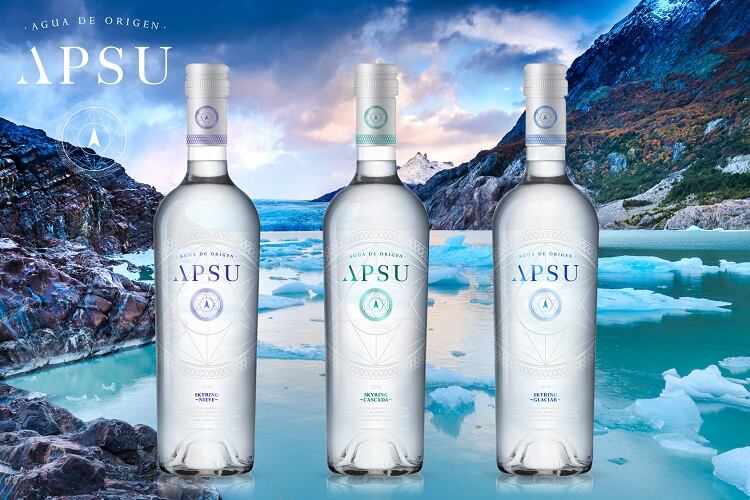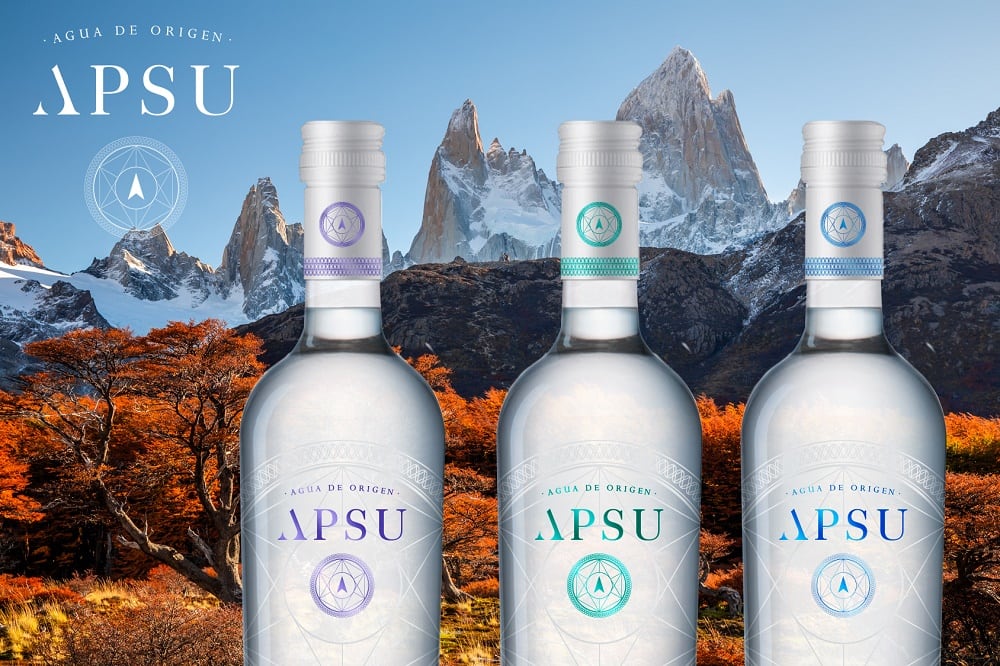Founded two years ago by three local entrepreneurs from Punta Arenas in southern Chile, the bottled water company is in the midst of a fundraising round for US$40,000 on Kickstarter to finance export certifications from the US Food and Drug Administration (FDA) and British Retail Consortium (BRC) as well as its first production round.
APSU Pure Origin Water will be produced in three 750ml varieties - Snow, Waterfall and Glacier - sourced using a nomad harvesting process that leaves no trace on the environment. Using a 20ft container processing plant transported on a barge to three sites in Chilean Patagonia for in situ harvesting and bottling, APSU aims to bottle a total of just 10,000 – 15,000 per site and ideally spend just one week at each.
“The goal is to harvest very little water; we want to make it very exclusive,” said Francesco Giangrandi, partner at APSU Pure Origin Water.
“...If that's enough volume to keep this going and to actually be of a real support to the region, we'll keep it at that,” Giangrandi told FoodNavigator-LATAM.
The goal of the company, he said, was not to make it into a business but rather “give back to the region”, starting with reforestation programs in national parks or reserves affected by wild fires but potentially working with other environmental causes in the region, like protecting penguins or glaciers.
“We're looking to give back. We don't want to close our minds to just one specific issue that might come up in the region.”
The cost of conservation
Giangrandi said APSU was still prospecting markets to work out exactly how many bottles would be needed to fund such efforts but the company would never bottle large stocks typical of other water companies.
“We don't have the capacity to produce large volumes, so that shifted us to the low-volume, high-price point angle,” he said. “...This is a kind of water you can give as a gift because of the story behind it. This is not something you're just going to go to the corner shop and buy.”
And with a goal price of $100-150 per bottle and first-batch special edition bottles for sale at $1,000, high-end hotels and restaurants would be the best-suited outlets, he said.
“For a product like this, the strategy would be to actually target a very high-end hotel that could offer [the water] in its most expensive rooms, for example. And that gives an instance to tell a bit of a story and show why the bottle of water costs what it costs and what's behind the whole process. It's not just a beautiful bottle with high-quality water in it – there's something else.”

APSU was also working on a tracking application that enabled consumers to scan a code and see where and when each particular bottle had been harvested; how it traveled to its final destination and more information on how that bottle was linked to conservation efforts in Chilean Patagonia.
“We want to make this very personalized, very small and very protective of the environment,” Giangrandi said.
APSU was currently prospecting options in the United Arab Emirates, luxury markets in China and Japan and the United States, specifically New York and Los Angeles.
“We're going to see which market would be the one with the least entry barriers but that actually has the necessary market for our bottles. We don't want to rush into a market just because it's easy to go in if it's not going to value our product (…) Time is of the essence but we don't want to rush things and make a mistake.”
Collaborative conservation 'essential'
Asked how important the private sector was for environmental conservation, Giangrandi said: “I think it's essential.”
But, he said APSU wasn't working alone – it was collaborating with local governments and Chile's national parks association CONAF to channel funds where they were best needed.
“Having the private sector involved gives us tools, give us resources, that through government would be very difficult or would take too long. And conservation is all about timing – it's about taking action today. So, the private sector actually brings to the table options to do things and do them now.”
APSU was working with other private companies like local tree nurseries, for example, to purchase trees for the reforestation programs, he said, that would then be overseen by CONAF and planted by volunteers. “It's a network around the region to tie everything up,” Giangrandi said.
In five years, he said APSU wanted to be a conservation specialist company protecting and conserving Patagonia in as many ways possible. In the short-term, he wanted the water brand to be “well-known”.
“Well-known in the sense that I would like people around the world to know what we're doing for the region. That's our main goal – to actually have this product out there, telling the story and having people fall in love with it. ...We are really looking forward to having this product out there and seeing how the world reacts.”

